Vanderbilt’s chapter of Young Americans for Freedom hosted conservative political commentator Michael Knowles for a talk titled “Giving Thanks for Settler Colonialism” on Nov. 29. Settler colonialism is defined as a system of oppression that aims to displace a nation’s population and replace it with a new settler population. Many students and community members in the 250-person audience expressed appreciation for the event, while others protested his visit and organized counter-events for the LGBTQ+ community.
Several VUPD officers and Student Affairs staff members patrolled the event, stationing at all entrances to the Student Life Center in which the event was held.
“Vanderbilt University Public Safety takes several factors into consideration when determining security for campus events, including the overall security needs of the campus, input from event organizers and security requirements by outside organizations,” VUPS said in an email to The Hustler.
Knowles, who works at The Daily Wire headquartered in Nashville, has stated previously that “transgenderism must be eradicated.” Vanderbilt Lambda Association, the university’s student-led gender and sexuality alliance, encouraged community members in an Instagram statement to attend an event co-hosted with the Asian American Students Association on navigating queer identity in the Asian diaspora, which occurred during the Knowles talk. The Office of LGBTQI Life also sponsored a “study and chill” event during the talk.
These events were intentionally held concurrently with Knowles’ talk to “support, uplift and affirm” members of the LGBTQ+ community, particularly those who are transgender and gender-nonconforming, according to a Lambda Instagram statement shared on Nov. 27.
Community members unaffiliated with Vanderbilt also attended the event, including UFC fighter Sam Alvey and a high school YAF chapter president from south Florida.
Protest
In their statement, Lambda condemned Knowles and called for community members to boycott the event.
“We strongly condemn any action or statement that others, dehumanizes or spreads deadly misinformation about our transgender and gender-nonconforming siblings,” the statement reads. “Giving a platform to speakers who propagate this hate directly endangers our trans siblings and community members.”
At the start of the event, around 15 students congregated in front of the SLC in protest, displaying signs, playing music and chanting “Protect trans kids” and “Trans rights are human rights.”
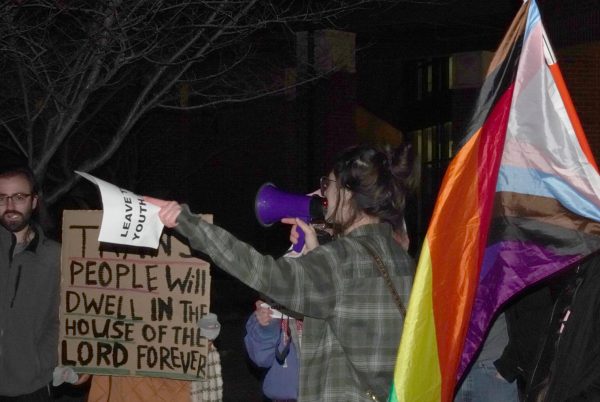
“Currently, LGBTQ people do not feel safe, and mostly trans people organized to oppose him visibly and speak in defense of our humanity,” a junior who protested and who was granted anonymity due to safety concerns said. “It is absolutely necessary for…student organizations to not be allowed to sponsor people who try to promote genocide.”
A university representative said in a statement to The Hustler students are encouraged to submit reports of concerns about their safety to the Office of Equal Opportunity and Access.
Immediately after Knowles stepped on stage, around 10 protesters in the crowd stood up with signs, interrupting Knowles’ speech to condemn his stance on transgender rights. Knowles denied the existence of transgender people and discredited the protesters’ calls, calling transness “preposterous” and labeling the protestors “lunatics.” The rest of the crowd began repeatedly chanting “U-S-A” in response.
“To all the normal, patriotic people in the room, I need to pause you on the great chant because I can’t hear the babbling [protesters] in the back,” Knowles said.
VUPD officers escorted the protesters out of the room due to the Student Handbook’s Freedom of Expression policy. VUPS told The Hustler that additional consequences for the protesters have yet to be determined.
“Both protests and dissents should respect the rights of others wishing to engage in the activity or event that is the focus of activism,” VUPS’s statement reads. “Others should be allowed free and safe access to the meeting or activity, unobstructed and undisrupted viewing, the ability to hear and view a speaker undisrupted, as well as the ability to otherwise reasonably participate.”
Senior Stephen Doan, who attended the event, said Knowles addressed the initial disruption gracefully. Doan added that he thinks speakers across on the political spectrum should be allowed to share their beliefs on campus unless their words actively incite violence.
“Vanderbilt should allow any speaker as long as they’re not actively calling for violence against people,” Doan said. “But liberal conservatives, moderates — they should all be allowed to speak on campus.”
Lecture
Though Knowles stated the focus of his topic was on settler colonialism, he spoke briefly about transness following the protesters’ removal from the ballroom.
“I’m not even here to talk about ‘transgenderism.’ I’m sick of it. It’s such a stupid argument that we even have to have,” Knowles said, elaborating on his belief in a rigid gender binary.
Knowles then spoke about the conflict in the Middle East. He stated that he believes that Israel should categorize itself as settler-colonial, stating that the Balfour Declaration established Israel as such. Issued in 1917 by the British government, the Balfour Declaration was a public statement of support for the creation of a Jewish state in the then-Ottoman-controlled region of Palestine. The statement was contained within a letter from British Foreign Secretary Arthur Balfour to British Jewish community leader Lord Lionel Rothschild for transmission to the Zionist Federation of Great Britain and Ireland.
Knowles criticized ongoing decolonization efforts and anti-colonial rhetoric, arguing that these “only push the problem [of to whom reparations should be given] further back.” He said he believes that conquest is part of progress and that attempting to return land that is colonized is a futile and backward effort.
“The Lakota only acquired the Black Hills in 1776, and the way they acquired it was by moving in from Minnesota and conquering the Cheyenne,” Knowles said. “So should the U.S. government pay one billion dollars to the Lakota because we took Lakota land, or should we pay one billion dollars to the Cheyenne because we took Cheyenne land?”
The Cheyenne lived in present-day central Minnesota before 1700 and later expanded to present-day North Dakota and the Black Hills, displacing the Kiowa. By 1776, the Lakota Sioux overtook the Cheyenne, gaining control of the Black Hills and pushing the Cheyenne west to present-day southeastern Montana. The Lakota and Cheyenne ultimately allied with the Arapaho in the Great Sioux War against the U.S. government in defense of their shared land. The Supreme Court ruled in 1980 that the U.S. had illegally seized the Black Hills. To date, the tribes have refused to accept the money offered in the case, stating that the land was never for sale.
Knowles then discussed early European settlers, referencing Hernán Cortés, Christopher Columbus, the Mayflower pilgrims and the U.S.’s Founding Fathers. He denied that these individuals settled in the U.S. for “material plunder,” asserting instead that they were driven by religion — a motive he praised.
“There will, after all, be conquest. People will grow, shrink and move. If there will be conquest, it seems preferable that such conquest be Christian,” Knowles said, later mentioning that Christianity is a superior religion to others. “Christianity has almost never spread by the sword.”
Knowles cited two exceptions to this alleged nonviolence: Charlemagne’s conquests and the Spanish Inquisition. However, Christianity has also spread violently in other cases, such as during the time of the Roman Empire and the Crusades.
He concluded by arguing that Western conquest is a nobler form of conquest than that of other religions, cultures and geographies in a broader statement of support for Christian nationalism.
After his lecture, Knowles began a Q&A session. Senior Collins Agyeman challenged Knowles on his belief in Christian nationalism and interpretation of American settler colonialism as “righteous.” Knowles believes that focusing on the Founding Fathers’ political and philosophical ideologies is more productive than focusing on their moral shortcomings, calling them “products of their time.”
“Just because the Western civilization [the U.S.] is [currently] on the top doesn’t mean that somehow we were destined to get there, so falling into this idea of Christian nationalism, colonialism being righteous — these are very fallacious ideas,” Agyeman said.
Agyeman told The Hustler that one of Knowles’ producers approached him after the event, lauding him for asking Knowles what he believes to be one of the only “difficult question[s]” during the Q&A. Although he disagrees with conservative ideology, Agyeman said he looks forward to attending future YAF speaker events out of appreciation for civil discourse and different perspectives.
“It’s important that college students, the majority of [whom] lean progressive, have these views challenged,” Agyeman said. “Just because Michael Knowles, Matt Walsh or Ben Shapiro [may] show up here, that’s not grounds to be upset. I welcome it, actually — it gives me a chance to have someone who I can engage with.”
Community responses
Vanderbilt Student Government released a statement on Dec. 1 criticizing Vanderbilt’s policy of principled neutrality and Chancellor Daniel Diermeier’s position on allowing free discourse to “go where it will.” The statement also denounced Knowles, referring to his transphobic rhetoric, and encouraged students to urge administrators to take action against hosting similar future events.
“Allowing students to disguise hatred as political opinions has left marginalized students to deal with the consequences with no support from the institution,” the statement reads. “We call for the Vanderbilt administration to stand behind the principles [“fostering a supportive and inclusive environment”] that it claims to support and act against threats to its students’ safety [alleged hate speech from Knowles].”
In a Dec. 4 conversation with The Hustler, Diermeier directly responded to VSG’s email, reaffirming the university’s commitment to inclusivity and distinguishing the university’s stance from its speakers’ opinions. He further encouraged students to continue to publicly voice their concerns and take stances on topics they feel are important.
“Michael Knowles doesn’t speak for the university. Everybody should be clear about that,” Diermeier said. “The idea [of principled neutrality] is: If [a topic is] not related to the core operation of the university, the university should stay silent, but that doesn’t mean that students or faculty should stay silent. When VSG said ‘We’re not bound by the principle neutrality’: absolutely — because you’re not speaking for the university…so it’s perfectly fine for them and individual students to take positions.”
Several other students and student organizations expressed their discomfort with Vanderbilt allowing Knowles to speak on campus.
“Vanderbilt, do better. Your ‘commitment to free expression’ should not extend to hate-inciting individuals nor be prioritized over the well-being of your marginalized students,” junior Saksham Saksena said. “Your aims to facilitate constructive conversation between students of different political beliefs are admirable, but your actions are in direct contradiction with this goal.”
Senior Katey Parham criticized the event for celebrating settler colonialism. She, like VSG, further attributed responsibility for this rhetoric to Vanderbilt for its policy of principled neutrality which she said enabled this discussion to take place.
“Knowing students [who support Knowles] around me celebrate the genocide of my community [Indigenous peoples] creates an unsafe environment for me and other Native students,” Parham said. “Vanderbilt’s lack of response or concern sends a strong message that they support such harmful rhetoric and will not take action to support marginalized identities within their community.”
Others reaffirmed YAF’s right to host Knowles on campus and expressed appreciation for the event. Sophomore Noah Jenkins, Vanderbilt’s YAF chapter president, spoke on the motives for hosting this and similar events.
“Many in my shoes tend to respond that it [hosting these events] is to increase intellectual diversity on campus, to promote free speech or to ‘own the libs.’ But while those answers are all conditionally true, our ethos is different: We seek to instill the wisdom of our forefathers into a generation that desperately needs it,” Jenkins said to open the event.
Jenkins told The Hustler that he submitted a request on Sept. 5 to the national YAF organization to host Knowles on campus, a process that is required for all events. Registering the event on campus followed standard procedures, including reserving a space in advance and displaying the event on AnchorLink.
“Knowles is an inspiration for many young conservatives,” Jenkins said. “He has a very new and novel approach, and I appreciate that. I really wanted to bring this message to the student body here.”

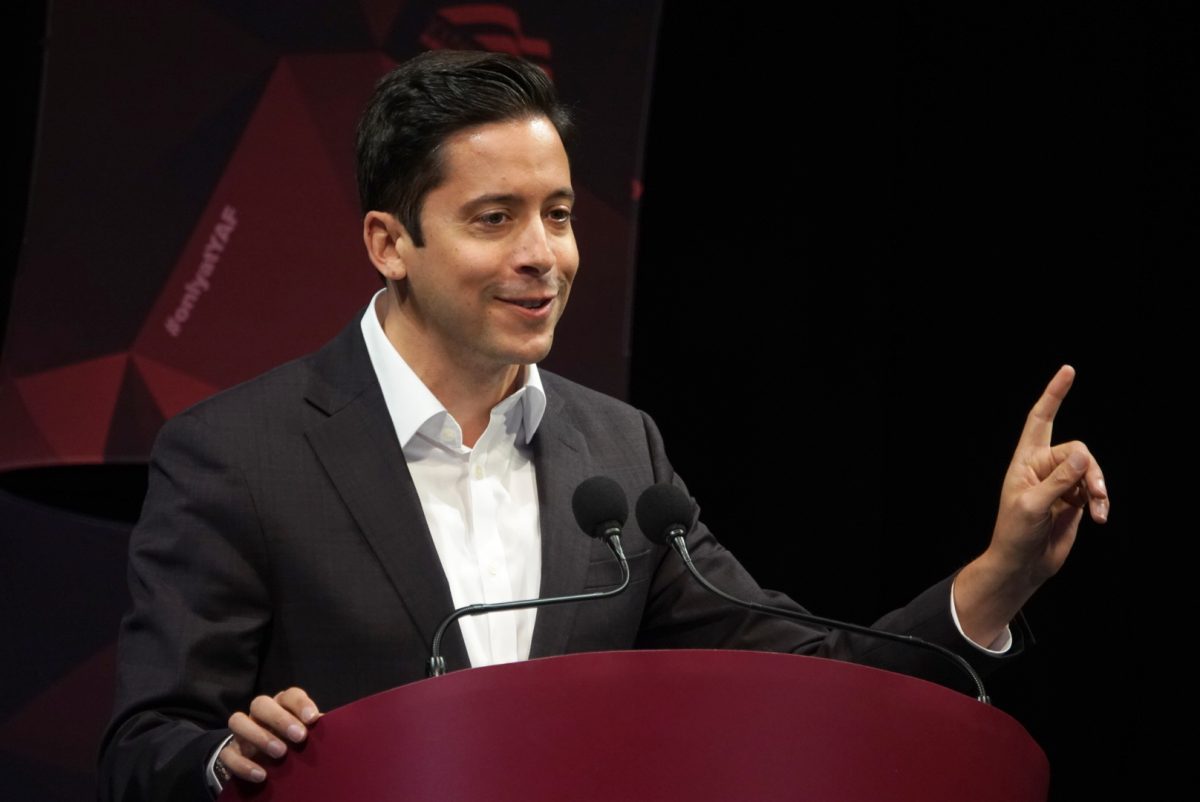


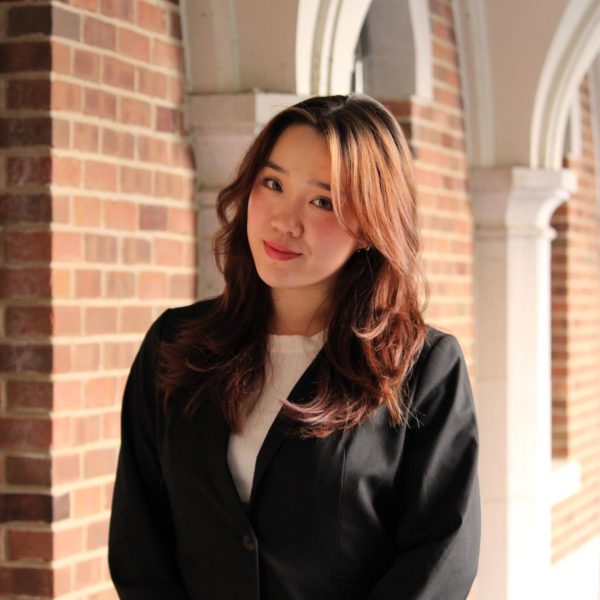

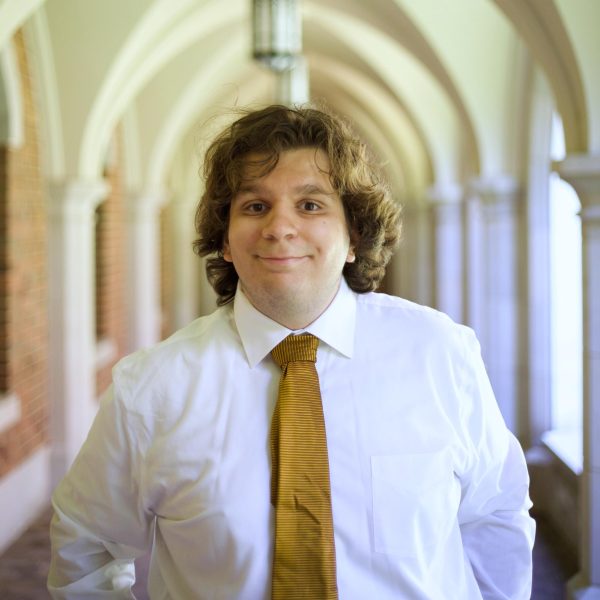
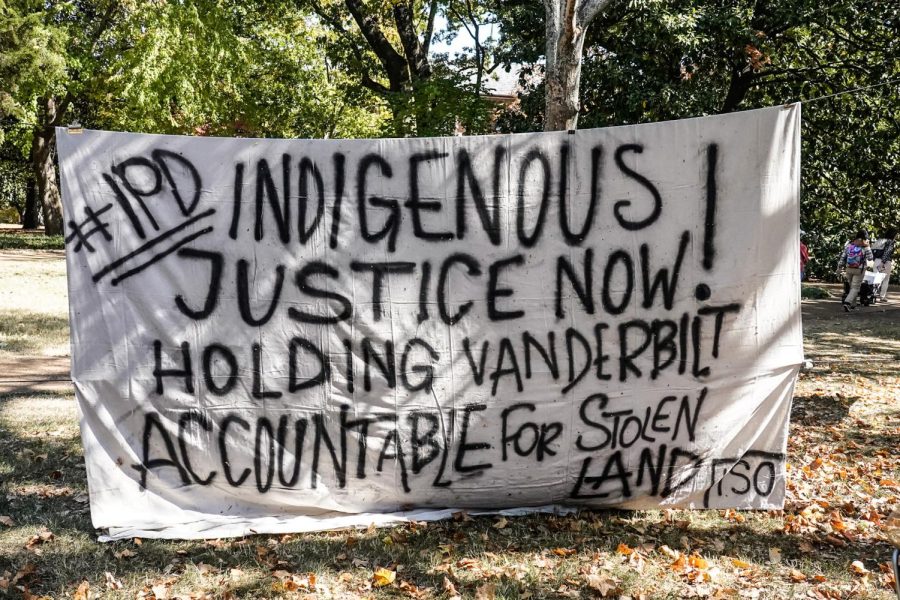
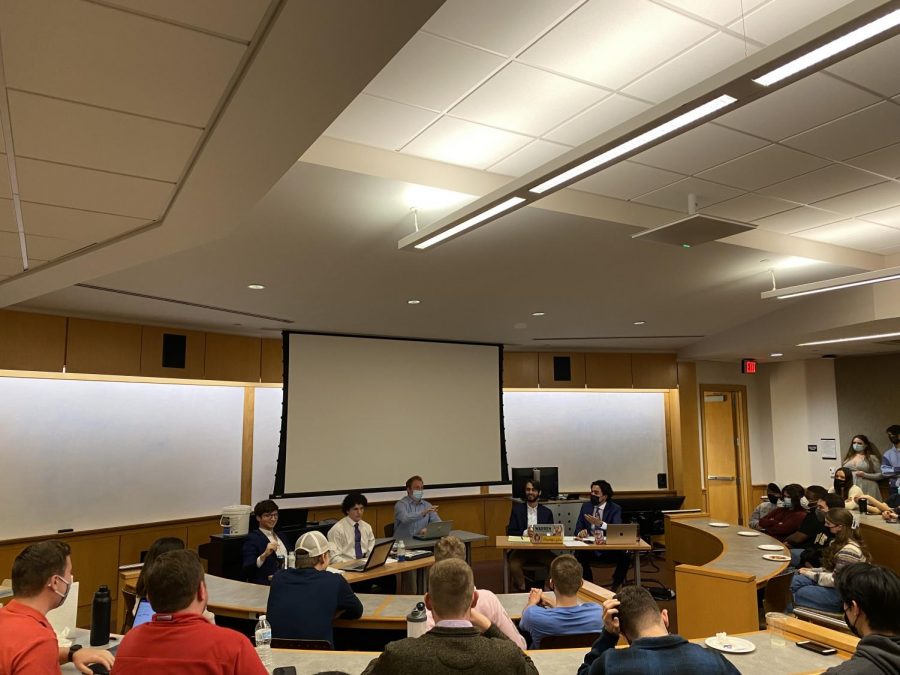

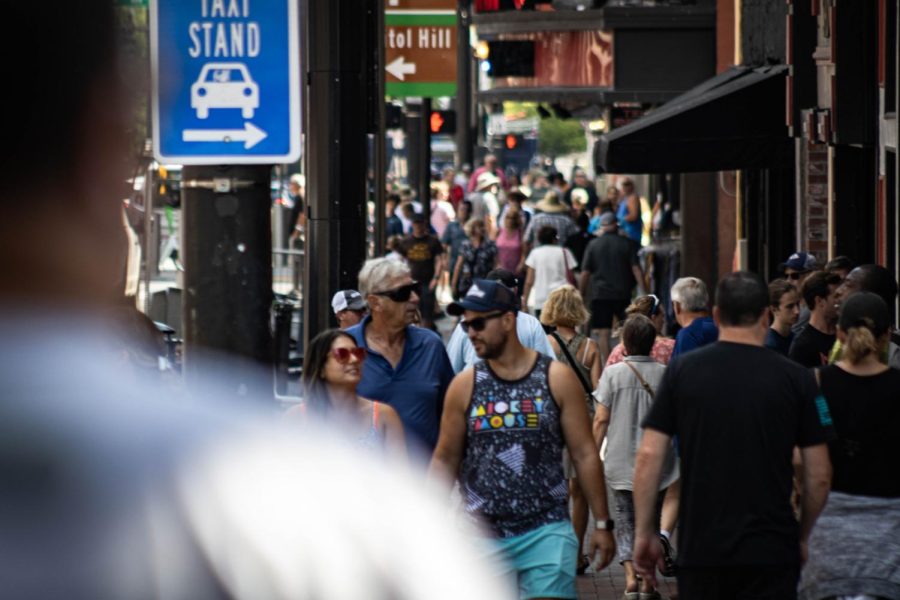

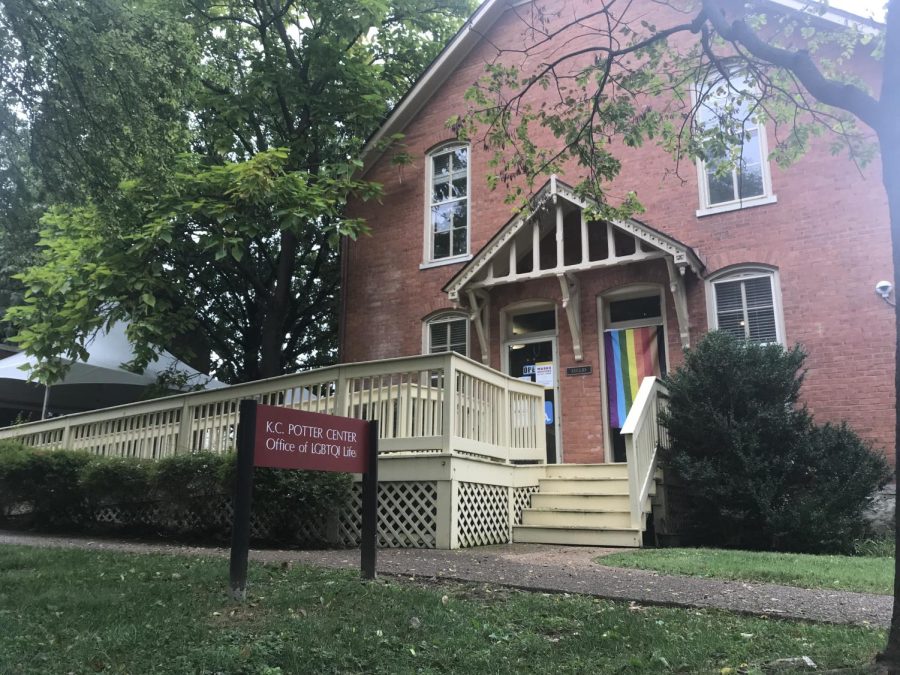

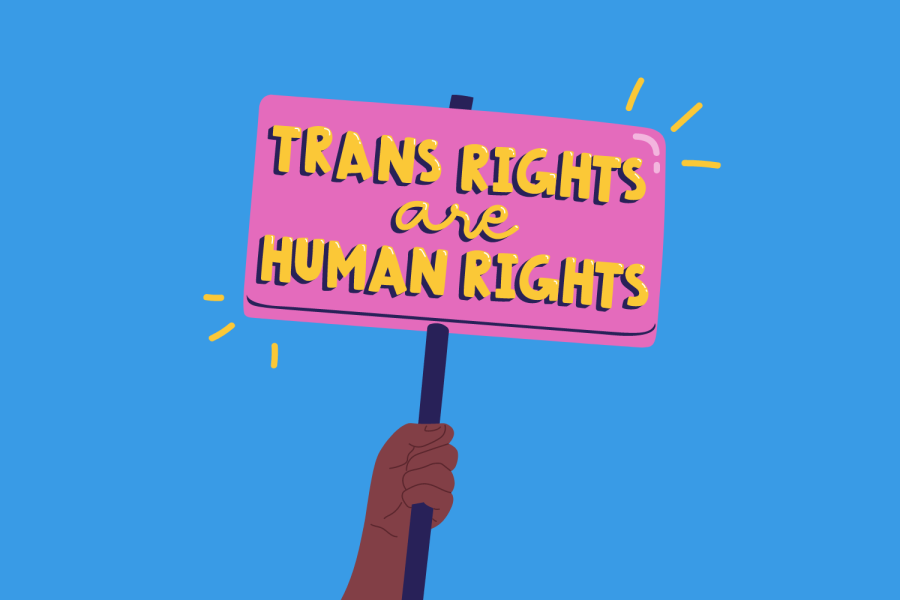
Alice • Dec 6, 2023 at 8:00 pm CST
College campuses should promote intellectual exposure and opportunities to refine your own convictions. The claims that Knowles “incited violence” by speaking about psychological and sociological theories is downright mental gymnastics. Students are increasingly mentally sheltered and it’s dangerous.
Grayson • Dec 14, 2023 at 2:09 pm CST
“For the good of society … transgenderism must be eradicated from public life entirely — the whole preposterous ideology, at every level.” -Michael Knowles.
So, I presume this “eradication” (his words) would be peaceful, according to you? “Eradication” is not usually a very peaceful process, is it?
What other groups with a protected status under law would you say calling for the *explicit* eradication of would not constitute hate speech under our university policies?
And what is this adding to the “intellectual exposure” here?
There are many, many transgender and nonbinary individuals on this campus as students, faculty, staff, and alumni. Maybe Knowles doesn’t make you feel threatened because you aren’t his target. And unless you say otherwise explicitly, I’m going to assume you agree with him given you feel the need to go out of your way to defend him by downplaying what he truly stands for.
As a reminder, our own faculty and staff have received death threats because of this culture war.
Is it still “hypothetical” to you? It seems to some people, the suffering of others is always an academic thought experiment.
Alice • Dec 15, 2023 at 1:56 pm CST
I don’t wholeheartedly agree with Michael Knowles. I do, however, defend his right to stimulate meaningful discourse on college campuses, where it is needed most.
I’m also confident that Michael Knowles himself has not personally encouraged or committed violence. Transgenderism as an ideology is separate from people who consider themselves transgender. I assume you would agree that eradicating sexism is not the same as eradicating every entitled male.
As a reminder, transgenderism is a theory that biological males/females can “be born in the wrong body.” Although there are various other plausible explanations for someone feeling like the opposite sex, transgenderism posits that we must unequivocally affirm everyone’s psychological self-image. I think there is great merit to discussing the implications of this theory, and perhaps even condemning it. Feeling personally violated because someone challenges the narrative you have taught yourself is incredibly insecure and antithetical to true growth.
I thank you for your reply and I hope this idea resonates!
Grayson • Dec 27, 2023 at 2:47 pm CST
Oh, I see. He didn’t say “kill transgender people”, he said “eradicate transgenderism”. Oh, I’m sure the transgender community will find that absolutely meaningless distinction comforting.
It’s pretty obvious you’re defending Knowles because you *do* agree with him, exactly as I predicted. You say you don’t agree with him on “everything”; well, you agree with him on enough. You’re spouting all the same talking points.
As usual, the last refuge of the scoundrel is in pedantry and semantics. This is a man that is trying to encourage violence against a mistreated minority group in this country, end of discussion. You’re defending evil, and the rest of our community is tired of seeing it reduced to an academic exercise while transgender people have their rights stripped away across the country. You cry foul because people see this for what it is and refuse to pretend it’s something else.
I think we’re done here.